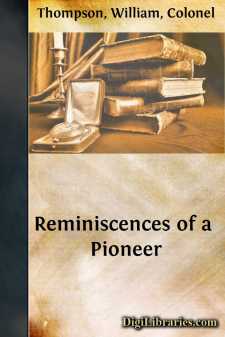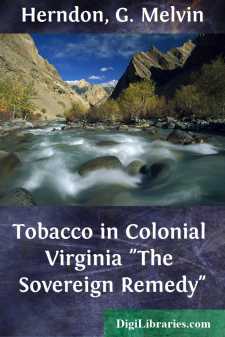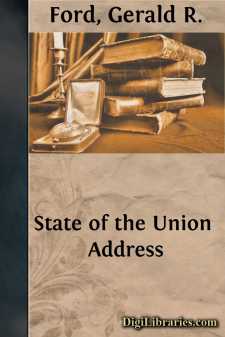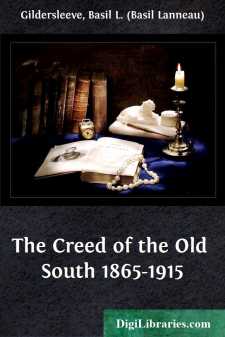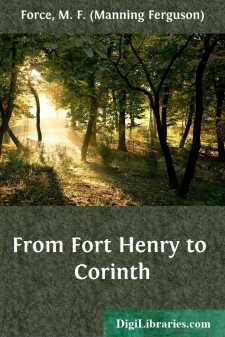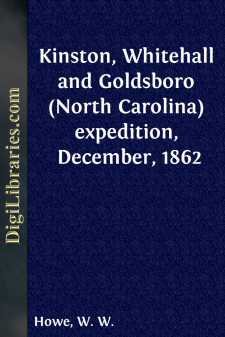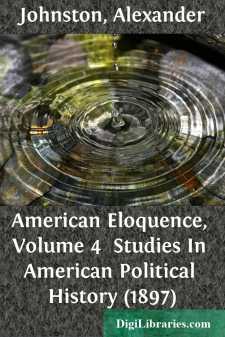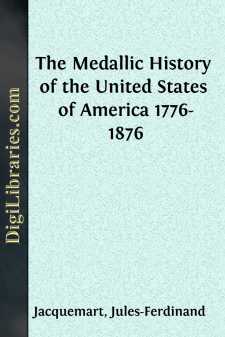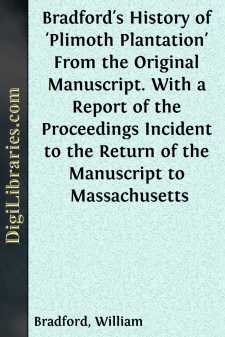History
- Africa 30
- Americas (North Central South West Indies) 50
- Ancient 68
- Asia 58
- Australia & New Zealand 8
- Canada 41
- Caribbean & West Indies 1
- Civilization 20
- Eastern Europe 12
- Europe 310
- Expeditions & Discoveries 60
- General 77
- Historical Geography 1
- Jewish 9
- Latin America 3
- Medieval 8
- Middle East 14
- Military 248
- Revolutionary 8
- Study & Teaching 5
- United States
- Western Europe 56
- World 13
United States Books
Sort by:
by:
William Thompson
Chapter I. Farewell to the Old Southern Home. I have often wondered, when viewing a modern passenger coach, with its palace cars, its sleeping and dining cars, if those who cross the "Great American Desert," from the Mississippi to the Pacific in four days, realize the hardships, dangers and privations of the Argonauts of fifty-eight years ago. The "Plains" were then an unbroken...
more...
"The Sovereign Remedy" Tobacco was probably first brought to the shores of England from Florida by Sir John Hawkins in 1565. Englishmen were growing it by the 1570's, and after the return of the daring Sir Francis Drake to England with a large quantity of tobacco captured in the West Indies in 1586, the use of tobacco in England was increased substantially. By 1604 its consumption had...
more...
by:
Gerald R. Ford
Mr. Speaker, Mr. Vice President, Members of the 94th Congress, and distinguished guests: Twenty-six years ago, a freshman Congressman, a young fellow with lots of idealism who was out to change the world, stood before Sam Rayburn in the well of the House and solemnly swore to the same oath that all of you took yesterday—an unforgettable experience, and I congratulate you all. Two days later, that...
more...
A few months ago, as I was leaving Baltimore for a summer sojourn on the coast of Maine, two old soldiers of the war between the States took their seats immediately behind me in the car, and began a lively conversation about the various battles in which they had faced each other more than a quarter of a century ago, when a trip to New England would have been no holiday jaunt for one of their...
more...
PREFACE. I have endeavored to prepare the following narrative from authentic material, contemporaneous, or nearly contemporaneous, with the events described. The main source of information is the official reports of battles and operations. These reports, both National and Confederate, will appear in the series of volumes of Military Reports now in preparation under the supervision of Colonel Scott,...
more...
by:
W. W. Howe
Major General J. G. Foster commenced a movement of his army from New Berne this morning. At 3 p. m. we came upon the enemy's pickets (near our present camping ground), when three prisoners were taken by the advance guard of the Third New York Cavalry. In attempting to press forward we found the road densely blockaded by felled trees; this blockade extended for several hundred yards, being situated...
more...
Infantry attacks with its fire, or with the bayonet. Which of these is the more effective? 1. The object of an attack is to destroy or capture the hostile force, or, at least, to drive it from the field. Capturing the enemy, or driving him from the field, cannot usually be effected by merely firing upon him. True, a mere fire at a distance may finally destroy him. But an insuperable objection to this...
more...
INTRODUCTION TO THE FOURTH VOLUME. The fourth and last volume of the American Eloquent e deals with four great subjects of discussion in our history,—the Civil War and Reconstruction, Free Trade and Protection, Finance, and Civil Service Reform. In the division on the Civil War there has been substituted in the new edition, for Mr. Schurz's speech on the Democratic War Policy the spirited...
more...
INTRODUCTION. Medals, by means of the engraver's art, perpetuate in a durable form and within a small compass which the eye can embrace at a glance, not only the features of eminent persons, but the dates, brief accounts, and representations (direct or emblematical) of events; they rank, therefore, among the most valuable records of the past, especially when they recall men, deeds, or...
more...
by:
William Bradford
INTRODUCTION. To many people the return of the Bradford Manuscript is a fresh discovery of colonial history. By very many it has been called, incorrectly, the log of the "Mayflower." Indeed, that is the title by which it is described in the decree of the Consistorial Court of London. The fact is, however, that Governor Bradford undertook its preparation long after the arrival of the Pilgrims,...
more...


